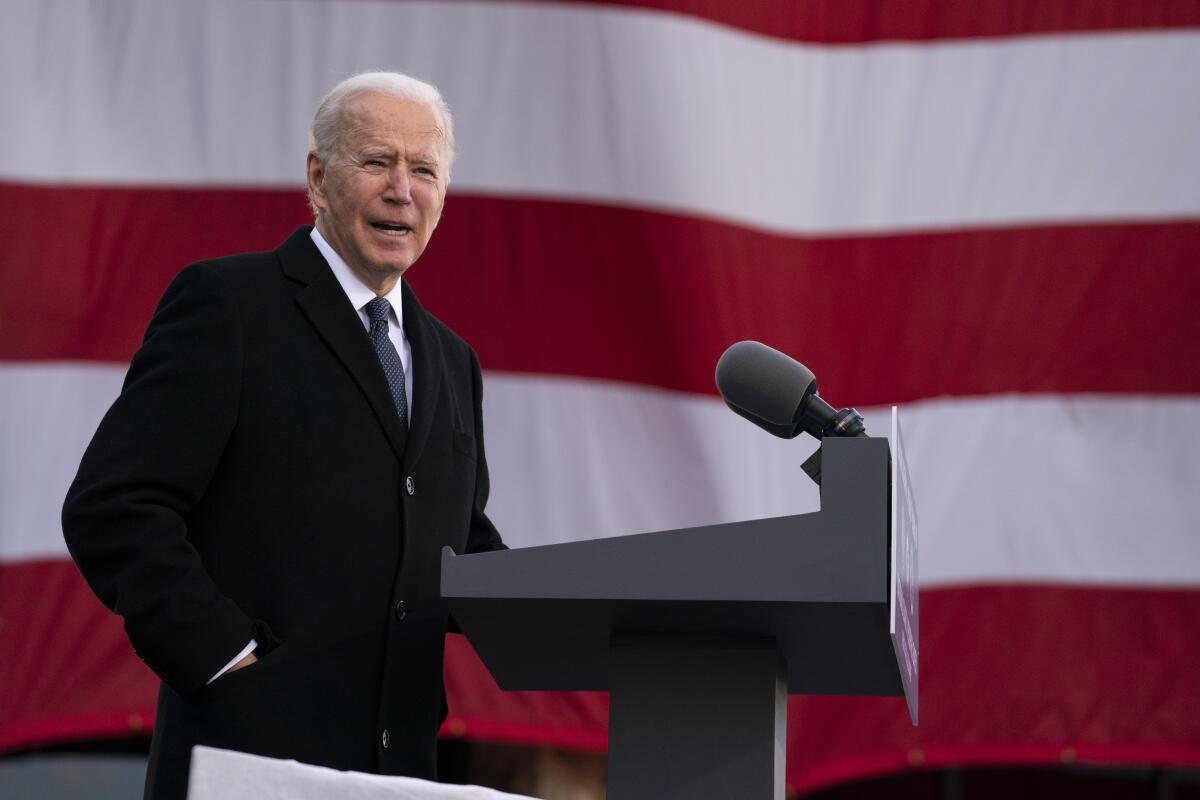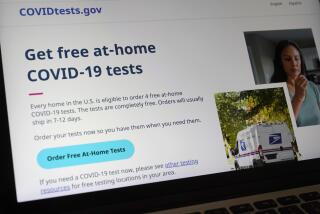White House launches ‘test to treat’ COVID-19 initiative, plan toward greater normality

WASHINGTON — Beginning this month, Americans will be able to head to their local pharmacy for a coronavirus test and, if they test positive, receive antiviral pills on the spot, at no cost to them.
President Biden announced the launch of the “test to treat” initiative during Tuesday night’s State of the Union Address as he emphasized the country’s progress in battling the pandemic, pointing to fewer coronavirus cases, greater vaccine and testing availability — and now, more treatment options. The program is part of a broader plan unveiled by the White House Wednesday to help Americans get back to their normal routines, even as the country continues to combat the virus.
“As President Biden said in last night’s State of the Union address, we’ve reached a new moment in the fight against COVID-19,” White House Coronavirus Response Coordinator Jeff Zients told reporters. “There’s a significant progress we’ve made as a country, the determination and resilience of the American people, and the work we’ve done to make tools to protect ourselves widely available.”
The 96-page plan outlines ongoing and new efforts to battle COVID-19, prepare for new variants, avoid shutdowns and fight the virus abroad.
The president will not accept just “‘living with COVID’ any more than we accept ‘living with’ cancer, Alzheimer’s, or AIDS,” according to the plan, but would rather ensure that the virus no longer dictates how Americans live.
The new paradigm was on display Tuesday night in the Capitol as Biden, Vice President Kamala Harris and House Speaker Nancy Pelosi (D-CA) stood maskless, along with most of the members of the other two branches of government in attendance.
And it comes on the heels of the Centers for Disease Control and Prevention’s new pandemic guidance, too, which eases certain COVID-19 precautions. Under the new framework, indoor masking is no longer recommended for counties where 72% of Americans live.
A key component of Biden’s plan is focused on ensuring treatments are widely accessible. In December, the Food and Drug Administration authorized the use of the Pfizer antiviral pill, which reduces the chances of being hospitalized with COVID-19 by 90%.
There will be one million Pfizer antiviral pills available this month at hundreds of locations in coming weeks, such as CVS, Walgreens and Kroger. “And we’ll have more than double that in April,” Zients said. The one-stop COVID-19 response shops will allow Americans to get tested and immediately receive the free treatment, if necessary.
Starting next week, the Biden administration will also allow Americans who ordered a free set of rapid-COVID-19 tests from covidtests.gov to order another set. The website has sent out more than 270 million tests since its January launch.
Federal officials stressed that the country has improved capacity to identify, track and combat potential new variants, pointing to additional surveillance testing systems now in place. If needed, we have developed plans and processes so that we can produce, authorize and deliver new vaccines and treatments in just 100 days, rather than in many months or years,” Zients said.
Many proposals in the plan will require buy-in from Congress, posing a potential hurdle. The plan seeks funding to significantly boost the manufacturing of vaccines and to invest in new COVID-19 drugs. It also pledges the administration will work with Congress to give schools and businesses the tools to stay open, and calls on Congress to reinstate tax credits to help businesses provide paid leave to those sick with COVID-19. There’ll be more research into the effects of ‘long COVID,’ as well, according to the plan, but that will also require congressional funding.
Some warn that marginalized communities, including people of color and the immunocompromised, may be severely impacted as the administration moves toward its goals for normality. There are currently about 75,000 coronavirus cases a day, a 37% reduction compared to last week, according to the CDC. The virus has claimed nearly 950,000 lives in the United States, with an average of nearly 1,700 people dying in the U.S. each day.
More to Read
Get the L.A. Times Politics newsletter
Deeply reported insights into legislation, politics and policy from Sacramento, Washington and beyond. In your inbox three times per week.
You may occasionally receive promotional content from the Los Angeles Times.











